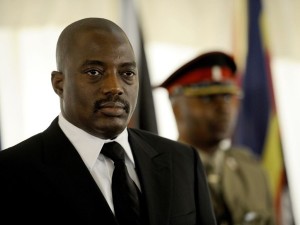
Internet service has been restored to government agencies and banks in the Democratic Republic of Congo, but otherwise a government shutdown of email, social media and mobile phone services, ordered on 19th January, remains in effect.
The DRC government moved to block communications in an attempt to quell public protests and clashes that left more than 45 people dead and over 1,000 injured.
As in other countries in Africa including Zambia, Zimbabwe and Malawi, the government claims the Internet and mobile phone communications are putting the security of the public at risk.
The Web is increasingly becoming a conduit for expression of social unrest on the continent.
In the DRC, people have been using text messages and social media networks to coordinate rallies to protest President Joseph Kabila’s political manoeuvres to change the country’s constitution in order to continue his stay in office.
The DRC government now fears that public protests might result in the overthrow of Kabila, just as public unrest led to the ouster of Muammar Gaddafi in Libya and Hosni Mubarak in Egypt in 2011.
Opposition political parties have called for mass demonstrations against the new electoral bill being debated in the Senate. The opposition is demanding that Kabila, who has been in power for 14 years, step down when his tenure ends next year.
The DRC government has admitted that the new bill is likely to cause delay in holding the presidential elections by at least one year.
France has voiced concern over the trouble and urged all parties to negotiate the proposed reforms in a “consensual fashion, respecting DRC’s constitutional and civil liberties.”
Operators and ISPs in the troubled Central Africa country have complained that they are losing millions of dollars following the directive by the DRC government to shut down Internet and mobile phone services.
Initially, the DRC government denied it directed ISPs and mobile operators to block Internet and mobile phone services. The DRC government has since acknowledged that it ordered mobile operators and ISPs to shut down services in order to stop people from coordinating protests through social media and mobile phones.
DRC government spokesperson Lambert Mende said this week, “we did it for security reasons because we have a constitutional duty to protect the country.”
So far, there is no indication as to when Internet and mobile phone services will be restored in the country. The DRC government said it has only allowed the restoration of Internet services for banks and other corporate bodies. This is the second time that the DRC government has shut down Internet and mobile phone services in four years.
In 2011, the DRC government banned the use of SMS and access to social media networks in a bid to curb violence following disputed results of presidential elections that returned Kabila to the presidency for a second five-year term.





